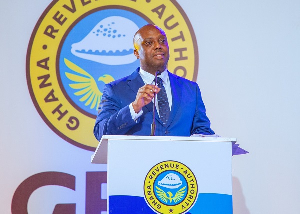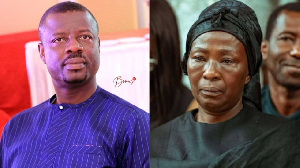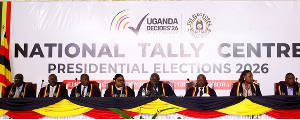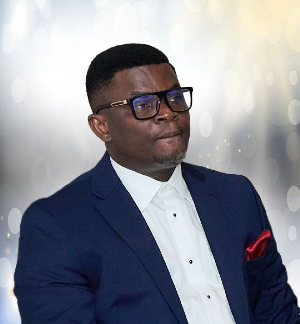Ghana after December 2012, and at 56 - Matters Arising! By Ghanatta Ayaric
The December 2012 elections in Ghana and the convoluted issues resulting from them have brought to the surface the deep lines of division in our politics. Coupled with the economic and social crises that our nation is going through at the moment, the elections have revealed the psyche of a nation in dire need of therapeutic attention. With Ghana at 56, they have left concerned Ghanaians pondering over the many challenges of the times, the future of our nascent democracy and the joint role of government and the electorate in the way forward.
The petition filed at the Supreme Council by the NPP’s Nana Akufo-Addo, Dr. Mahamudu Bawumia and Jake Obetsebi-Lamptey against President John Mahama and the Electoral Commission, the boycotting of national duty and government business by the NPP minority in Parliament, the refusal of the NPP executive to recognize John Mahama’s presidency pending the final verdict of the Supreme Court as well as pro-NPP demonstrations in Kumasi and far away Washington DC, all point to a country in the grip of serious political divisions and uncertainty, and a democratic process that is struggling to take off.
Differences in ideology are in the nature of parliamentary democracy, but the differences Ghana witnessed during the election campaigns and is still witnessing seem to have less to do with real parliamentary democracy. This is a disturbing factor and a sign of dishonesty on the part of some of the major players in the political scene and their lack of commitment to real programmes of social and economic relevance. It is not the first time Ghana is being taken through this kind of politicking. Older Ghanaians can recall the discordant relationship between the United Party (UP) and the Convention People’s Party (CPP) in the 1950s and 1960s. However, the present generation of politicians should have learnt the lesson that political discord is detrimental to development and national unity. Time and the Supreme Court will prove the fairness or foulness of the 2012 elections. Whatever the final verdict, a concerted effort at reconciliation from both sides will be needed. In this connection, we may have to start studying the content and workings of the Truth and Reconciliation Commission (TRC) of South Africa in the 1990s which was used to diffuse tension and reconcile blacks and whites after the fall of the racist Apartheid system in that country, thanks to Nelson Mandela, Bishop Desmond Tutu and well-meaning South Africans who, despite the horrendous injustices committed by Apartheid, opted for peace instead of civil strife and violence.
The events following the December elections have also clearly revealed the ailing psyche of Ghanaian society, a psyche already ravaged over the years by the notorious rot of corruption, work indiscipline, negligence of duty, incompetence, thievery in the civil and public services, and a general mentality of “get-rich-fast” by hook or crook despite a bloody reminder in June 1979 that revolutionary change in the system was, and still is, long overdue. A lot has been said and written about the multitude of ills holding back Ghana’s progress, and it is clear to every Ghanaian that our approach to nation building and understanding of democracy is basically faulty. There is nothing new in this article that has not already been said by many concerned Ghanaians. Nonetheless, our predicament as a less-developed nation in which mental slavery is pervasive must be repeatedly emphasized! How come Ghana is lagging far behind her peers, the tiger states of Asia, for example? Since her independence in August 1957, Malaysia, for instance, has mastered a socio-economic and political challenge that Ghana can only dream of. Malaysia is the world’s 29th largest economy (compare Ghana’s ranking), and has made it possible for its citizens to enjoy annual incomes of nearly $15,000 (compare Ghana’s). She has only four million people more than Ghana, and almost the same natural resources as our country; rubber, timber, bauxite and oil among others. In terms of power generation, she has been very innovative in her efforts at making use of alternative sources of energy, above all, natural gas in the form of biomass, obtained from wood, leaves, animal waste, crops, bones and scales, and which accounts for about 80% of her electricity. And she is working on benefiting from her geographical location near the equator to use the power of the sun’s light and heat as a source of renewable energy. Ghana can take an example from Malaysia. Our oil, from which we are yet to benefit fully, if at all, is not infinite!
Singapore, which first merged with Malaysia in 1963 but left to become an independent country in 1965, has evolved from a less-developed country to an economically and socially advanced nation. Her healthcare system is adjudged by the World Health Organization as the best in the world, focusing on preventive healthcare as a way of promoting good health (chewing gum is banned there, the general suggestion is clear). Singapore’s status as a striving financial market is only one of her enviable achievements. So, what has gone wrong and is still going wrong in Ghana to explain our apparent inability to benefit from our natural and human resources, or make use of the numerous opportunities created by the advanced technology of the 21st century to bring about the same development achieved by Malaysia and Singapore? Did they inherit a different set of institutions from the British? Are they not also prone to exploitation by the giant economies of the world, the way Ghana is? What could Malaysia and Singapore be doing right that Ghana is doing wrong?
There is no denying the fact that the Asian tiger states have adapted the inherited institutions to their specific vision and worked hard over the years to strengthen them. The infrastructures they have put in place for nation-building and economic growth are solid. Can the same be said about Ghana? Our country still lacks a network of first class roads, bridges and railways connecting our cities, towns and regions to one another. And all sorts of rickety vehicles jam our streets and inhibit the smooth flow of traffic, and by relation, business. We have just one international airport, and if the unexpected happens and Kotoka cannot be used, international air travel will cease to exist, temporarily, at least. Our healthcare delivery is a mockery of good health promotion. Most state hospitals lack basic medical equipment and adequate personnel. Our cities and towns are choking in filth, plastic and toxic waste, above all. Unemployment among the youth is very high. Or is it that most of the youth lack the kinds of qualifications and productive skills that are needed by employers, especially in the private sector? Our schools and universities have become places where acquiring certificates and degrees is an end in itself. And most holders of these are quick to go to the rooftop to announce their high-sounding “qualifications” to the whole world, but when it comes to putting the knowledge acquired in the various areas of learning to practical purposes, to the kind of innovative thinking and endeavor that ignites and brings about social and economic progress, they are found wanting.
Need mention be made of the intermittent cuts in electricity, shortage of fuel, gas and water, problems that have been with us for years and have only come to a head in the past few weeks? Who wants to imagine where we would have been today if Nkrumah hadn’t built the Akosombo Dam? The catalogue of our failures, where Malaysia and Singapore have succeeded by dint of visionary initiative, hard work and strong institutions fuelled by their peoples, is endless, and goes to suggest the extent to which Ghanaians have failed in patriotic duty and nation building so far. And far from tackling our serious challenges with a cool-head, our nascent parliamentary democracy is diverting, by the very nature of its partisan politicking, its focus from the real issues. Much as many of us want to be optimistic about our democratic system, its composition and attitude towards our challenges leave us with justifiable misgivings about its ability to bring about change in many areas of our national life. One does not need to be a political scientist to understand that a good functioning democracy is based on government for the people and by the people, backed by strong institutions and the rule of law, factors which are constantly activated by a people’s awareness of their rights and RESPONSIBILITIES. A functioning democracy needn’t be perfect, but it must gear overwhelmingly towards near perfection. Can we see the model we are trying to establish in our country as taking these factors into consideration and vigorously making efforts to establish itself on a good and strong footing?
Ghana’s democratic process seems to lack the materials for a solid foundation on which coming generations can proudly build. Having political parties that are yet to endorse the culture of persuasion by way of analytical and objective arguments which put the supreme interest of the nation above party and personal ambition is weak material for a strong foundation, and cannot have full-functioning people’s power rising from it. Insults on our airwaves, television screens and websites as substitutes for discussion and coordinated efforts to find a common rhythm in our differences are incompatible with democracy. Democracy is not the absence of military rule, neither is it the practice of going to the polls every four years to elect representatives, most of whom enter parliament solely to line their own pockets and/or are able to influence, to a large extent, a gullible electorate with money, gifts and promises of a big piece of a juicy pie that turns to crumbs once elections are over and votes secured. Democracy is not built on the doctrines of Animal Farm where politicians and their allies in the civil and public services accord themselves special treatment and privileges that far outweigh the real needs of people on the street. This is not to suggest that the Western models we have copied are perfect ones. Despite centuries of existence, the British and American systems have their share of crises from time to time, but they are constantly improved upon. And the success of these systems are not without the burden and dark sides of history, namely, the abominable and outrageous phenomenon of injustice from man to man, slavery.
Can Ghana enslave other people, except Ghanaians, to offer free labour for her socio-economic growth? Do we have colonies, except our people and natural environment, to exploit? Can our democracy stand the test of deep financial and national crises? Is our nation prepared to cope with natural disasters, the sort of the Asian tsunamis of 2004 and 2012? Are we prepared to face the consequences of global warming, drought and floods, in the short and long terms? Living in the Ghana of the 1960s to the 1980s, one did not have to be a prophet (and, my God, there are more prophets in Ghana today than the number that walked the Israel of the Old Testament) to predict that the ongoing crises would have been excuses for soldiers to storm Broadcasting House and announce the removal of government, suspending the constitution in the process. This is a nightmarish scenario no democratic-minded Ghanaian would like to imagine, however justifiable the young flight-lieutenant’s anger on May 9 and June 4, 1979 was. Nevertheless, parliamentary democracy, solidly built on strong institutions, is the only ACCEPTABLE option, government by the people and for the people, with the people wielding power, and in total awareness of their collective RESPONSIBILITY expressed in the their willingness and ability to be instruments of meaningful social, economic, cultural and psychological change.
Yes, the nucleus of government for the people and by the people (executive, parliament and judiciary) carries a major part of this collective responsibility, being directly charged with putting in place and executing viable policies, making and enforcing the laws of the country for the common good. These main branches of government must, therefore, exhibit selflessness, commitment and vision in the execution of their duties. But it is also true that the role of the electorate in this context is far from being minimal. Government and electorate form an inseparable team. No government, however good its policies, can make a nation progress without the active participation of the people. And it takes a visionary and charismatic leader, the caliber of Abraham Lincoln, Kwame Nkrumah or Thomas Sankara, to mention just a few, to motivate a people to positive action and ensure that policies are well implemented. Policies are not self-executing! Therefore, while it is the right of the electorate to demand good governance, it is equally imperative for it to endorse and carry out its civic responsibilities to the maximum. WE, the PEOPLE, make, constitute and sustain strong institutions, institutions that can be used as leverage for positive change. President Obama could not have stated the case better during his visit to Ghana when he stressed that Africa needs “strong institutions”, above all. State institutions are a reflection of the PEOPLE, and vice versa. Thus Ghanaians as a society share the blame for the woes of our country today. Picking on any of the regimes we have had since independence will not help us much today. Learning from their mistakes is wiser. We, Ghanaians, are our main obstruction to our progress, and this is clearly manifested in our negative approach to national duty. The desire to do one’s job well and contribute to better results for the common good is mostly lacking, having encased our minds in the deceptive thinking that the state or government is a remote entity, detached from the individual, community and society. The mindset that “it is government work, not mine” is dangerous and suicidal. Yes, we are, in our majority, so obsessed with selfish interests and so focused on satisfying the hunger for our acquisitiveness that all sense of self-reflection on individual and collective responsibility is often banned from the mind. This category of unpatriotic and corrupt people are found in all sectors and at all levels of our society; in private business, in parliament, the executive, judiciary, civil, public, police and military services down to the man on the street. And the underlying traits of their attitude are ripping off others, shameless thievery and greed, placing personal advantage and self-aggrandizement above the common good, and the more successful the criminal activity the more these predators parade themselves around as successful and respectable citizens, glorifying in their ill-gotten money and property, having done nothing productive to merit the tag of success they attach to their names and persons. And in this connection, the wheels of corruption and its attendant effects are greased day in and out.
The unpatriotic civil and public servant schemes ways of diverting part of funds or items meant for public projects for his private use. The police officer, magistrate or judge connives and condones with the lawbreaker. The government hospital pharmacist diverts and sells medications to private pharmacies. The headmaster colludes with the accountant to embezzle funds meant to help improve the quality of teaching and learning. The custom officer denies the state rightful and needed income by taking bribes and helping people to evade taxes. The shallow-minded Ghanaian litters his environment, chokes street gutters with all kinds of waste and makes the beach his place of defecation, hardly giving a thought to the health hazards of a filthy environment. And the sluggish organs of state charged with ensuring good sanitation turn a blind eye to everything. The sight of the scummy canal and stinking gutters around Kwame Nkrumah Circle in Accra immediately kills one’s appetite for food, however hungry the stomach, not to mention the seas of rubbish in wretched settlements of the capital like Sodom and Gomorrah. Talk about maintenance culture in our public and civil services and the term loses its meaning. Broken-down state equipment, vehicles, inventory and facilities are simply left to deteriorate further and finally forgotten in most cases. Yes, something basic is wrong in our society. Even simple aspects of national life like obeying traffic regulations are hard things to do for most drivers, motorists and pedestrians. Zebra crossings have lost their significance. The reader can add more examples, and you won’t be lacking in them.
And in the end, patriotism and doing things right are thrown to the dogs. Only “fools” believe in abstractions like patriotism, honesty or hard work. Direct responsibility as a personal challenge in the execution of duty becomes valueless, and self-reflection on the general repercussions of one’s actions for the whole is not considered. And so we shun the things that matter, conscientiousness and civic duty. Honesty and compassion have become mere words, laughable terms in most cases, shouted out by dubious men of God to gullible congregations and in time-consuming “all night” vigils of “prayer”, entering, at best, through one ear and immediately escaping through the other, or whizzing, at worst, past the confines of the ears and head.
Yes, Ghanaians must wake up to the signs of the times in today’s global village and listen carefully to the silent voices of reason condemning our self-inflicted wounds and suicidal tendencies: our apparent aversion for progress, the cancer of corruption that is incapacitating us, the retrogressive effects of partisan politics, tribalism and many more. We must learn to ignore the many ignorant and good for nothing loud mouths on our airwaves, turn a deaf ear to detractors, the likes of the prolific columnist or commentator patronizing our websites and incessantly spitting venom instead of engaging us in useful discussions and a healthy exchange of opinions and ideas on relevant matters. And if we have placed all hope in prayer to God to “bless our homeland Ghana and make our nation great and strong”, the boldness to defend the cause of nation-building and the willingness to work to attain the level of development we cherish (middle-income salaries and access to the benefits of civilization for the majority) are patriotic duties. Would God bless and make our nation great and strong if we are not prepared to help ourselves in the first place? Unless we are able to rise above our weaknesses as a nation in a global economy based on knowledge, stiff competition and the principle of survival of the fittest, we will continue to match time for an indefinite period of time.
In a nutshell, there is an urgent need and a demand on Ghanaians to endeavor to put Ghana first, put the vision of the founding fathers and mothers of our dear nation to reality. God’s Blessing will follow when we accept and face our challenges squarely, make the best of our heritage, both colonial and Ghanaian, concentrate on positively educating our children and youth, and in the process, help diffuse their minds of illusionary and distorted visions of riches and success, and have them understand that money and success come with useful knowledge, productive skills, hard work, patriotism and social responsibility. WE, the PEOPLE, have an active role to play and a duty to strengthen and safeguard our institutions and make them function as the instruments of nation-building and development that they are meant to be! Fulfilling our destiny is a moral imperative, a COLLECTIVE RESPONSIBILITY!
Ghanatta Ayaric, Hamburg, Germany. Email: ghanattaa@gmail.com
Opinions of Monday, 18 March 2013
Columnist: Ayaric, Ghanatta














